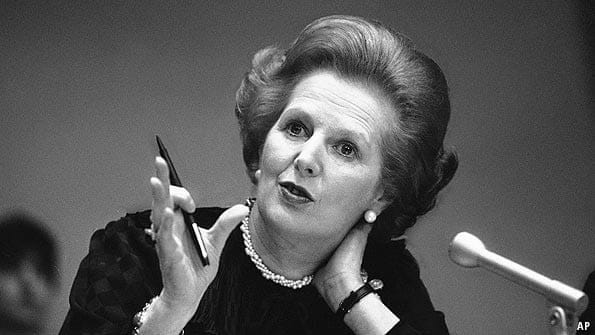Last week I was in Hong Kong where I delivered a workshop called ‘Building Great Relationships Fast’. The workshop consists of two key modules; NLP based rapport building, and the Trust Equation as developed by Maister, Green and XXX. One of the topics I cover within the rapport building section is the importance of tone of voice where I refer to the late British Prime Minister, Margaret Thatcher as an example.
When Thatcher was a junior politician she had a high pitched voice. Her then boss Edward Heath pilloried her for having the "hectoring tones of the housewife". As amazing as this will read in today’s world, the BBC dropped her from a political spot because her voice was deemed to harsh.
The impact of high pitched voices is deeply rooted in our psychology. They are perceived as indicating a lack of emotional control. A study of 792 US CEO's conducted by the University of California and Duke demonstrated that a drop of 22hz in voice frequency, after normalising for educational level and other key factors, correlated with a $187,000 increase in compensation. The reality is that a voice in a lower frequency range encourages others to see us as successful and smart – an unconscious bias that we should all be aware of.
Thatcher turned to Hollywood voice coach Kate Fleming and worked with her from 1972-1976 lowering her voice by two full octaves and turning her voice from an 'annoying shrieking' as described by her biographer, to the voice that became the Iron Lady. Thatcher openly acknowledged that she would never have become prime minister without addressing her tone of voice.
The Duke University research concluded that we find voices at 125 Hz more pleasing to tune into. It’s not about sounding like a man, it’s simply about avoiding a high pitched voice which research suggests is one of the most career stunting variables for a man or woman.
The sound of our voice matters more than twice as much as what we're talking about. A 2012 quantified impressions study of financial spokespersons reviewed in the Journal of Voice found that persuasive speaking comes from Passion (27%), Voice Quality (23%) and Presence (15%). Content was the same as Presence at only 15%. A full 50% (passion plus voice quality) is a direct function of our tonality.
We are worst person to make judgement on our own voice pitch however. If you would like to monitor and improve your tonality, buddy up with a colleague that you work closely with, someone who hears you communicate under pressure and participates in meetings with you.
Ask for candid feedback; you need someone who will say what needs to be said. Too much as stake to ignore it!
Finally...the reason that I chose to write today’s blog on this topic, and particularly around Margaret Thatcher, is because one of my students last week asked me if I had videos to demonstrate her voice shift. I didn’t! It was a great question that I had never been asked in over a decade of using this case study so I did some research.. Finding videos of Margaret Thatcher as a junior minister are few and far between, however below is a link to an interview she gave after her maiden speech in 1960, and another from one of her most icnonic speeches to the European Council Summit in Rome in 1990. Decide for yourself!
Interview after maiden speech in 1960
Classic ‘No No No’ speech to parliament in 1990
If you found this blog useful, please click ‘like’ below and forward to friends and colleagues to subscribe. If you disagree or have anything to add, please comment!
For short form videos, quick tips, useful quotations and other items related to soft skills. Please follow me on the following link! https://instagram.com/softskillsexpert?igshid=NTc4MTIwNjQ2YQ==
To catch up on previous blogs and make sure you’re not missing out on some great insights, check out the archives here.




